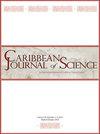特立尼达Pitch湖孔雀鱼的生活史(Poecilia reticulata Peters,1869;Poecilidae)
IF 0.5
4区 生物学
Q4 BIODIVERSITY CONSERVATION
引用次数: 4
摘要
摘要特立尼达孔雀鱼(Poecilia reticulata)能够适应各种环境条件,甚至是少数能够忍受广泛污染的物种之一。在特立尼达的沥青湖,由于石油和沥青的自然渗透,他们生活在有毒的水中。在这篇论文中,我们描述了皮奇湖和附近未被沥青/石油污染的参考地点的孔雀鱼在几个生活史特征上的表型差异。我们发现,Pitch Lake的孔雀鱼(i)比参考地点的孔雀鱼更小,(ii)繁殖投资更高。此外,它们(iii)产生了更多更小的后代。这些结果与高死亡率的情景一致,高死亡率可能是由水毒性和比参考地点更高的捕食性共同造成的。因此,我们建议将沥青湖作为研究长期(自然)水污染对鱼类影响的理想系统,这可能为鱼类适应极端环境提供有趣的见解,并可能进一步帮助预测鱼类对人为污染的反应。本文章由计算机程序翻译,如有差异,请以英文原文为准。
Life histories of guppies (Poecilia reticulata Peters, 1869; Poeciliidae) from the Pitch Lake in Trinidad
Abstract. Trinidadian guppies (Poecilia reticulata) are able to adapt to various environmental conditions and are even among the few species that can tolerate extensive pollution. In the Pitch Lake of Trinidad they live in highly toxic waters due to natural seepage of oil and bitumen. In this paper, we describe phenotypic divergence in several life-history traits between guppies from the Pitch Lake and from a nearby reference site with waters not polluted by bitumen/oil. We show that guppies from the Pitch Lake were (i) smaller and (ii) had a higher reproductive investment than those from the reference site. Furthermore, they (iii) produced more and smaller offspring. These results are congruent with a scenario of high mortality caused probably by a combination of water toxicity and higher predation than at the reference site. We therefore propose the Pitch Lake as an ideal system to study the effects of long-term (natural) water pollution on fishes, which might provide interesting insights into adaptation to extreme environments, and might further help to predict fish responses to anthropogenic pollution.
求助全文
通过发布文献求助,成功后即可免费获取论文全文。
去求助
来源期刊

Caribbean Journal of Science
综合性期刊-生物多样性保护
CiteScore
1.00
自引率
25.00%
发文量
21
审稿时长
>12 weeks
期刊介绍:
The Caribbean Journal of Science publishes articles, research notes, and book reviews pertinent to natural science of the Caribbean region. The emphasis is on botany, zoology, ecology, conservation biology and management, geology, archaeology, and paleontology. The mission as a nonprofit scholarly journal is to publish quality, peer-reviewed papers and to make them widely available.
 求助内容:
求助内容: 应助结果提醒方式:
应助结果提醒方式:


